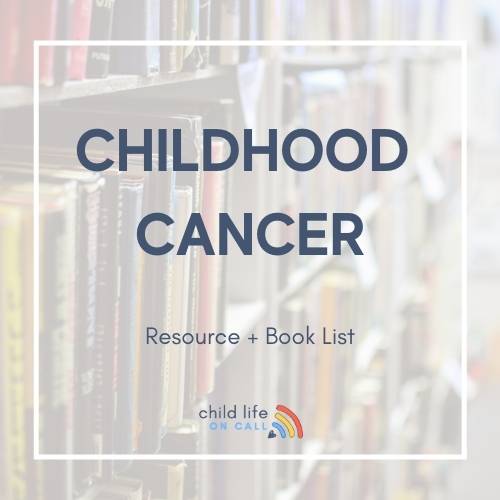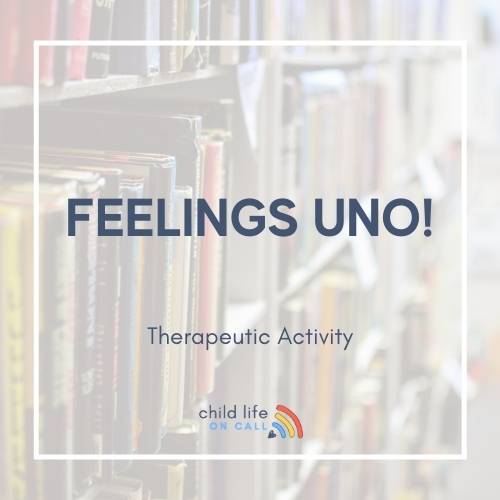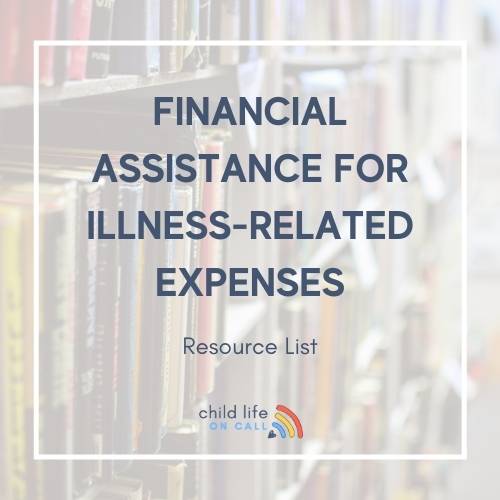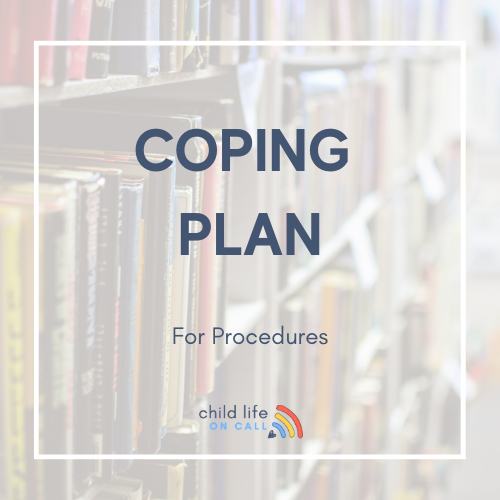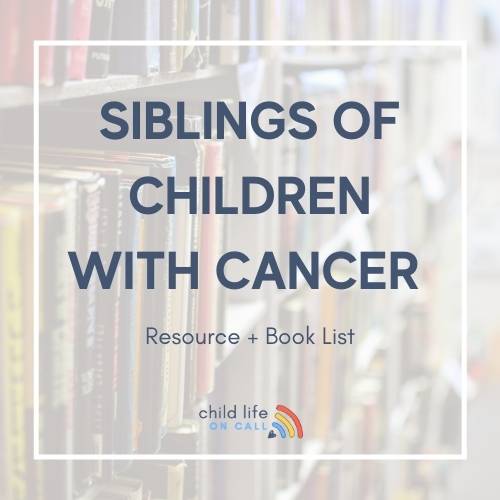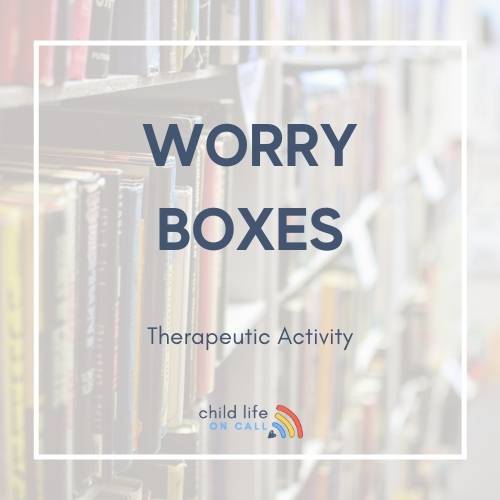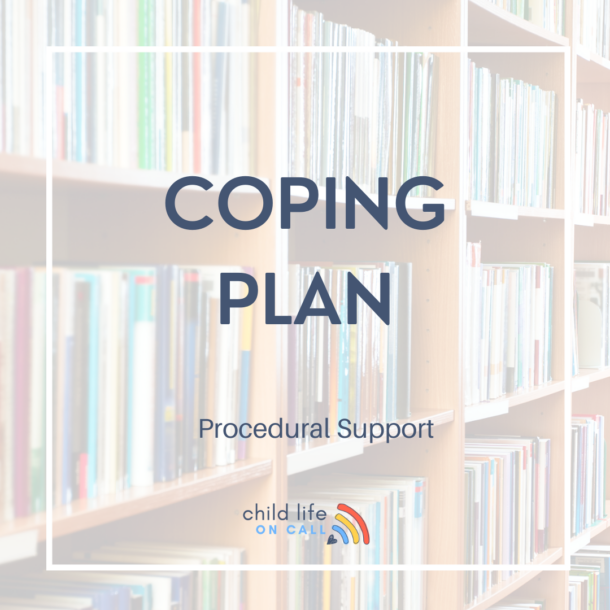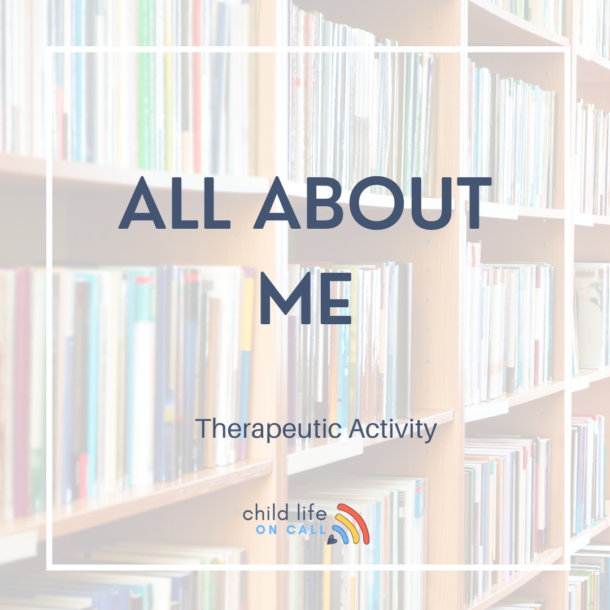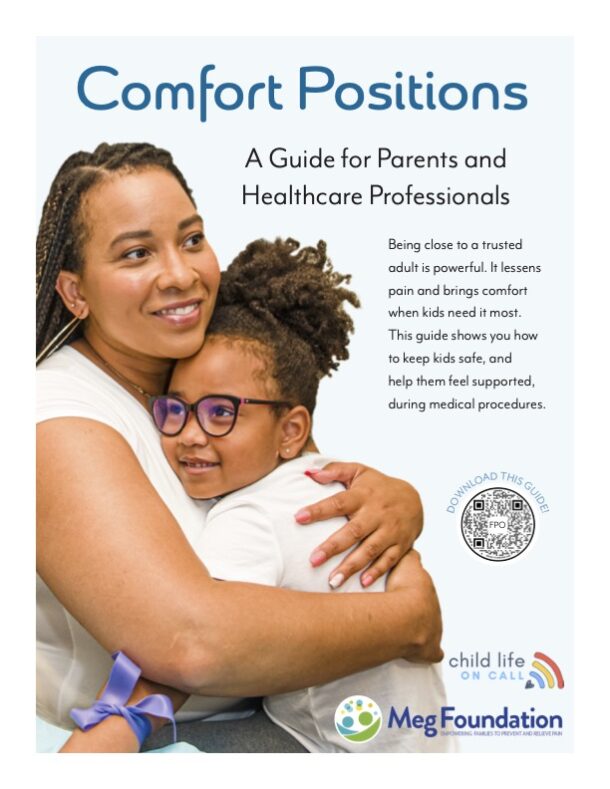"I've learned so much in this whole process. It's like you have a depth inside of you that resurrects as an advocate and high alert, and it lives inside of you when you need it." -Aspen, Willa's Mom In this episode of Child Life On Call, host Katie Taylor and guest...
Episode 107 | How to Support Healthy Children of Adults with Illness with Julie May
Podcast Show Notes
Julie May has been a child life specialist for almost 20 years. She is here today to talk with us about how to talk to and support kids who have an adult in their lives who has an illness. Julie talks about what Wonders and Worries does, and what is accessible for families today. You can get support anywhere in the United States completely for free! You won’t want to miss this episode, because Julie also shares how to read cues based on a child’s development, how to know if you have taken the conversation too far, if it’s time to play, or if they need any other intervention. Julie is a wealth of knowledge, and I am so glad we get to learn from her.
In this episode, we talk about…
[2:02] Julie May’s personal and professional background
Julie has been a child life specialist since 2003, and she started in the Dallas area. Her family then moved to Austin, TX, and she started working at Dell Children’s Medical Center. She worked the night shift for a while, as it worked well for her family. When she felt like it was time for something new, she was thrilled to join the staff at Wonders and Worries. She has been there for four years now, and she has loved every second of it. It’s a dream for her to work under that leadership and to be mentored by those brilliant minds every day.
In addition, Julie is a mother to four kids ranging from high school to first grade. She feels like she thrives on chaos, which works out well because her life is definitely chaotic. You can follow along with Julie and her family on Instagram @crazymaydays.
[4:52] Wonders and Worries: a pioneer program in the child life field
Wonders and Worries was created by two incredible child life specialists who have been in the field for a long time. Missy Hicks and Meredith Cooper started the organization years ago, with the idea to support healthy children who have parents facing chronic illness. When they were working, they saw so many consults they were receiving in the community were from adult hospitals trying to support children whose parents were ill.
The goal behind Wonders and Worries is to provide a high level of support for families and to provide family-centered care. Everybody should feel like they understand the illness and that they have the tools and capabilities to navigate that illness. We do not want stressors to delay their development as children and as families, but rather we want them to move forward with their communication and their growth.
Wonders and Worries is also different from similar programs because they are not connected with families through the hospitals directly. Rather, families are connected to them through referrals in the community. They have the gift of time, which is really the best gift you can give a family facing a long journey. They can connect with these families, walk alongside them, and meet their children where they are.
For some children, we meet them when their parents are newly diagnosed, for example with ALS or early stage cancer. They are able to explain, at that point, what the illness is and what the treatment plan looks like. There can be a coping plan put in place. Maybe two or three years later, the parent had gone into remission but the cancer comes back at a stage three or four, or maybe the ALS has become more aggressive. At that point, Wonders and Worries can build upon what has already been established. There is already trust between them and the family, and they can meet them where they are at this new point. It’s a beautiful relationship that gets started early on, and Julie is honored and humbled to be a part of this work.
[8:42] Advice for parents who want to protect their child from their illness
Julie’s work with Wonders and Worries reminds me of the Child Life On Call mobile app that I am building. It is based on the idea that all families should have access to this information and to these tools, so they have something to fall back on when they are in the trenches. That sounds similar to Wonders and Worries, because they meet them closer to the beginning of their journey and not necessarily in the midst of trauma.
When it comes to the desire to protect your children from your illness, Julie acknowledges the importance of their work in connecting with the parents first. Hearing a parent talk about their kid is a window into their world, and there is no better way to learn about a family than to listen to a parent gush about their kid. She loves that about working with Wonders and Worries, because they have the time to do that. They aren’t doing a quick prep before they run to surgery, or meeting a family when they are in the trauma bay or during end of life care. Even when parents might have received a horrible new diagnosis or are in the middle of an awful, grueling treatment, they light up when they get to talk about their kids. That is their joy. So in weekly sessions, they get to share their joy.
As the parents are sharing about their children, Julie can point out that their child sounds so insightful, bright, or intuitive. She gets to explain that children pick up what is happening around them, even if they aren’t told directly. When a mother is stressed, her baby can tell that her heart is beating faster. If parents are having a conflict, you might notice your toddler acting out. They can bring it back to development and say, even if the child doesn’t know exactly what is going on, they are able to pick up these cues around them. They know that something is going on, even if they don’t know that their parent has cancer or they don’t know what the illness is called.
What they want to do to support their children, therefore, is to give them the words so they can take the fear out of the situation. The biggest thing Julie tells parents is that we have to change the language for children. You, as the parent, are not giving this ‘hard’ to your child. The illness is the ‘hard’ for your family, and unfortunately we can’t take that away. What we can do, though, is give tools to help your family be able to carry that.
Early on in her time at Wonders and Worries, a mentor shared with Julie the imagery of going on a vacation. They talk with parents about the concept of packing for a trip. When you are packing for a trip, you might pack a couple of outfits and you might pick a medium-sized bag for your weekend getaway. If you’re packing for your child, you aren’t going to pack the biggest suitcase in your house. You are going to pack a small suitcase because they have tiny shirts and little shoes. The goal of Wonders and Worries is not to give them information that is so heavy for them to carry that they need the big suitcase. We want to give them information that is child-sized, and that they can carry in a suitcase that is appropriate for them.
While many in the medical community are brilliant with supporting adults, they are not trained in giving information in a child-sized package. Child life specialists are experts in providing language for kids and information that meets their developmental needs. Julie loves that imagery of packing for vacation, and she feels like that helps parents to understand that they do not have to share every piece of information with their young children.
Julie also assures parents that everything will be communicated to their children based in play. Wonders and Worries has a research-based curriculum that they follow, providing little bits of information at a time. Her role as a child life specialist is never to take a child’s hope away. Her role is to give them information, tools, and opportunities. Through that work, children are better able to process what is happening in their families.
Throughout Julie’s different experiences as a child life specialist, she sees pros and cons to work with acute cases versus the work she does now with chronic illnesses. With child life, the gift is that they are able to find ways to meet parents where they are at. If you only have a short time, you have to establish rapport and let them know that you are a safe person. More than anything, though, parents just want to feel heard. They are terrified after having all of this information thrown at them, and they are worried about their most important person or people to them in the whole world. Wonders and Worries allows them to get to that place where they can get out of fear and feel heard.
[18:39] Developmental stages and what information children can handle
Julie tells parents to focus more on their individual child than on their age. She has a son who has always been an information seeker, so he wants all the information. At a younger age, she feels like he could handle more information. Parents have to think a bit about how age meets with their child’s personality and needs. Some want to know all the things and have all the questions, while really young children may need to play more and get less information.
When Julie is talking to kids, she is looking for cues about whether they want more information or not. If they are asking to go play or if they stop talking, you want to honor that the child is communicating their need for a break. It is okay to go back to the conversation at a different time. Some kids may abruptly change the subject, and that is their way of politely trying to say that they have had enough. Older kids might either completely shut down or start to pull back. That is where you can let them know they can take a break if they want to. Julie always brings it back to choice. There is a lot of power with choice, and especially for older kids they need to feel like they have a voice and can decide what information they want to know. That control goes a long way with helping them with their coping.
Before talking with your child, Julie suggests having a plan. It can be a very loose plan, but you want to consider how you envision the conversation going. It probably won’t go exactly as you expect, and that is okay. It is also important to think about your own triggers, because a lot of parents have difficulty or are uncomfortable with showing emotion in front of their children. A new diagnosis or an end of life diagnosis leads to a very difficult conversation, and it naturally evokes emotion. Parents can take breaks as well, and they can transition away from certain points of conversation if needed.
Julie can help parents make these plans beforehand, so they feel like they have emotional support before going into the conversation. It’s the whole concept of putting your own oxygen mask on first, before you can put one on your child. That plan allows parents to take care of themselves through the conversation as well. In addition, Julie reinforces with parents that emotions are okay and no emotions are bad. Some children will become very tearful and emotional, and that doesn’t mean as parents you have broken your child. Your child is emoting, and that’s an okay thing. Emotions are allowed. It also means that the child feels safe and trusts someone enough to share those emotions.
It is also important to recognize that, if a kid does not cry or show emotion, it does not mean that they are not hearing or processing the information. It means they are holding it close, and maybe they are going to share it in a different way. Maybe they will draw it out later, or go for a run, or have a private moment to feel those emotions in the shower. They may hear the information and then ask to go play. Three hours later, they may ask a question like they never had that conversation before. That is normal too, because they are repeating the information so they can better process it.
Julie does not want parents to panic or to feel like they have done something wrong when it comes to these conversations. Having that time to prepare with a parent is so important. Having that space to have preliminary conversations before they even talk to their children is huge. Julie recognizes that child life specialists do not always have this gift of time in the hospital setting, but it is nice to have it with Wonders and Worries.
[25:17] Showing emotions in front of children
Parents may worry that crying or showing emotions in front of their child will make the child feel worse, but Julie reiterates that emotions are absolutely fine. The self-check she shares is that if you get to a point where your child has to comfort you, that means it is time to take a pause. They have moved into a role of comforter and provider, and while that is very tender-hearted and sweet, we don’t want a child to have to take on that role. We want a child to be able to stay in a child-like state. That means it is time for a parent to take a moment of self-care, and that does not mean that a parent is in the wrong for having big feelings.
If there are two adults that can be a part of this conversation, the tag team approach can also work well. That person can then tag in if the other person is having big feelings. The parent that may have started the conversation knows they have that level of support as well, and it models teamwork and partnership in a strong system.
[28:29] Why Julie thinks it is so important to talk to kids about illness
Julie shares a story that showcases why it is so important to talk about illness with kids. She worked with a family that was very resistant to talking to their children about illness, as they did not want to burden them. They assumed the kids didn’t know, and the mother had aggressive cervical cancer. Often when you go through treatment for this type of cancer, you don’t lose your hair. So without that obvious side effect, they were hoping she could go through treatment without the children knowing about it.
It was still very early in the family’s time with Wonders and Worries, and the school was calling the parents and saying that their child was freezing up at school. He was in second grade, and the parents started to worry that he was experiencing headaches, seizures, or another medical issue of his own. When Julie met him, they were playing in the fire station in their playroom. He told her there is a fire truck right by his school, and every time he hears the siren he thinks they are going to get his mom. So he was having a physical reaction to hearing an ambulance go by the school because he thought they were going to pick up his mother and she wouldn’t be there when he got home. At this point, his parents hadn’t even talked to him about her illness – but he picked it up anyway. He didn’t know what was going on, but he knew it was something that might mean she had to go to the hospital.
In this child’s mind, the ambulance sound was connected with the idea that his mom wasn’t going to be there when he got home from school. Julie refers to this as “child-like imaginative anxiety”. Once the parents were able to have a conversation with him, they let him know what would happen if his mom did have to go to the hospital. His grandmother would pick him up, the school counselor would talk to him, and he would not come home to an empty house. Once that plan was in place, he stopped freezing at school.
So it just goes to show that leaving kids to process these things alone can be scary for them. A little bit of communication can help alleviate so much stress. Mom’s cancer was not as scary for this little boy as coming home to an empty house. Talking to children and having somebody who is an expert in child development to help guide the conversation is such a beautiful thing. Parents should feel empowered and comfortable with having important conversations with their kids.
[34:51] Getting involved with Wonders and Worries
There is a place to make a referral on the Wonders and Worries website, and they now have offices in Houston, San Antonio, and Austin, Texas. They also have a helpline to provide national support. If you know of anybody who has chronic illness (such as ALS, cancer, heart disease, diabetes, or fibromyalgia) and that adult is struggling with how to have a conversation about it with their child or a child in their life, you can call that helpline and a child life specialist will be on the other end to help guide that conversation.
Wonders and Worries is a nonprofit organization and it is a completely free resource for families. They also have a registered provider program, so they have child life specialists, social workers, and therapists who have taken their program all over the country. They are trained by the Wonders and Worries team in their curriculum, and they do the program where they live. So if you call that helpline and there is a registered provider in your area, you can get connected with them as well.
Connect with Julie:
Have you heard? The Child Life On Call mobile app for parents, kids and their care team will be available in 2022. Sign up to stay informed here
Child Life On Call is a community of parents and professionals that share ideas, stories and resources to help YOU navigate your child’s unique experiences. We give you strategies to support yourself and your family through life’s challenges. We are so glad you are here.
Child Life On Call | Instagram | Facebook | Twitter
You Might Also Like…
214: Sacrifice, Advocacy, Joy: Raising a Son with End Stage Kidney Disease – The Ransome Family’s Story
"Sometimes it's really therapeutic though to remember all that you have gone through because I feel like there are times when we look at each other and I'm like how did we get here?" Taylor Ransome We're grateful for our sponsor for this episode, Nestle Health...
213: Parents, CCLS, Students: Show Up Exactly As You Are
In This Episode: Katie Taylor goes off the beaten path in this special episode to share a profound moment of inspiration that struck her. This episode is a heartfelt message to child life specialists, students, and parents, emphasizing the importance of showing up as...

